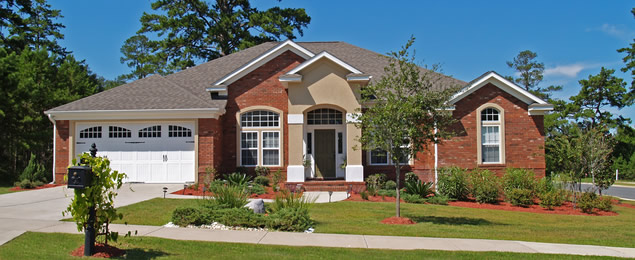Cities vs. sober homes: Do regulations work?

STUART, Fla. – April 17, 2017 – The city of Stuart wants residents at 105 S.E. Seminole St. to move out of the drug and recovery center and for no one else to live there until there’s proof the building meets the state residential building code.
This is the latest development in the ongoing issues that have pitted the city against the building’s owners and the tenant. Some of the disputes have played out in federal court over the past four years and more recently in state court.
Waters Edge Recovery is a drug and alcohol addiction treatment and recovery center that operates out of two buildings on the eastern end of Seminole Street. One is at 117 S.E. Seminole St. The other is the two-story, beige building at 105 S.E. Seminole St., where recovering addicts live and which is the building at issue.
But what the problem truly is depends on who you ask.
The city just doesn’t want a sober home there, said Tim Wright, an attorney for the property owners.
Stuart has no problem with the site being used for a sober home, City Attorney Michael Mortell countered. But it needs proof the building meets the Florida Building Code for residences, he added. The code dictates safety aspects, like a bedroom should have windows and an exit door, Mortell said. During a March fire, it became evident there were residents in rooms with no windows or exit doors, a building-code violation, according to city records.
Now, the city plans to sue owners Michael and Eileen Gorman and ask that residents move out until the proper Florida Building Code certification is obtained, Mortell said. Ultimately, for the city, it’s an issue of safety for the residents, he said.
“That’s hogwash,” Wright said of the city’s argument. “That building has been there since the (19)50s or ‘60s. People have lived there. People have worked there. It’s no different than any other building in that neighborhood.”
The city just doesn’t want the recovery center and the upcoming lawsuit would be “a continuation of a pattern of abuse by the city against Mr. and Mrs. Gorman simply because they are the landlords to this recovery center,” he said.
This hardly would be the first court case involving this building.
Waters Edge Recovery, which is the building’s tenant, sued the city first in 2013 and amended its complaint in February. It’s accused Stuart of violating the federal Americans with Disabilities and the Fair Housing acts saying the city discriminated against the recovering addicts by refusing to make a reasonable accommodation to make housing available, court records show. The two federal acts cover people with disabilities, including recovering addicts.
The city argued it can provide a reasonable accommodation to Waters Edge Recovery for it to house the recovering addicts at the building as long as the proper certification is obtained that the building meets the Florida Building Code for residences, Mortell said.
Separately, the building’s owners sued City Manager Paul Nicoletti, City Development Director Terry O’Neil and former city staff member Gloria Fike for, in part, conspiring to implement an attack against the Gormans, including “the filing of false, baseless and frivolous claims,” according to the complaint.
The city is yet to file a response in court to this case but it has taken issue with the three staff members being named individually when they were all working within the scope of their employment with the city, Mortell said.
Waters Edge Recovery’s president and CEO Tyler Gorman is the son of the building’s owners, Michael and Eileen Gorman.
Copyright © 2017 Journal Media Group, Lidia Dinkova